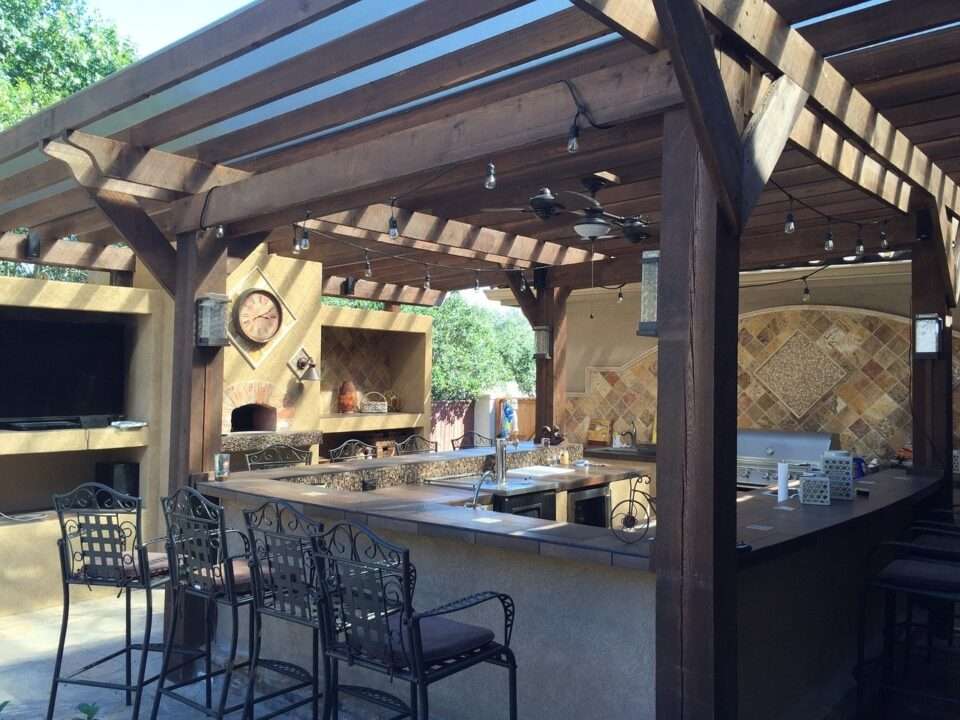Today, more people are utilizing outdoor space as an expansion of their home. Fresh air and the beauty of the outdoors are inviting to people of all ages. Many people are adding kitchens to their outdoor living space, and it is important to choose the right countertop for the project. Durability is of top importance, as weather conditions can take a toll on countertops. Consider these options to top off a new outdoor kitchen.
Granite
Granite is perhaps the best material to use for RTA Outdoor Living kitchen countertops. It is extremely durable and can withstand heat from the sun and hot pans. Granite is resists mold, mildew, and stains, and with a proper sealant is very easy to maintain. There is a wide variety of colors and designs to choose from, and the granite will not fade even with the sun’s harsh rays. Sunlight can make darker colors of granite hot to the touch, so if there is no shade in the outdoor kitchen, consider a lighter color of granite for the countertops.
Concrete
For a rustic style, consider poured concrete. An advantage to concrete is that it can be poured into any shape, which is especially nice for custom-shaped kitchens. While the sun can change the color of the concrete, if it is made in a natural shade, such as tan or black, it will always look fine outside. Concrete needs to be sealed because it has a porous surface. Sealing it will work well to keep bacteria and mold from growing.
Quartzite
Quartzite is a natural stone, not to be confused with quartz, which is man-made. Quartz is not a good option for outdoor use because the sun will change the color of the material. But, quartzite is a great option because it is easy to care for, like granite, and it looks like marble but the surface is much easier to take care of. It is recommended that quartzite be sealed once a year to protect it, and while it is safe from the sun’s rays, quartzite cannot handle the heat from pans. So, trivets and hot pads are a must.
Glass
While it might seem like glass is a bad choice for outdoor use, it is a great option. Glass is very durable, especially when it is thick. Glass does not need a sealant, and it is easy to clean with everyday cleaners. In addition, glass can be embedded with different small objects like shells and small stones. Another option is to add LED backlighting to give the outdoor space a cool vibe.
Soapstone
Soapstone is another great material for outdoor kitchen countertops. Soapstone has a dark, natural tone and, unlike concrete and quartzite, it does not have to be sealed to be maintained. A drawback to soapstone is that it can get very hot when in the sun, so it is best used in a shaded area. Also, soapstone is soft, so it can be easily scratched or dented with sharp knives and kitchen objects. Fortunately, these scratches can easily be buffed out with sandpaper.
With so many options to consider, the countertop in an outdoor kitchen can truly be an extension of the home. Be sure to look around at all of the options before settling on one.

